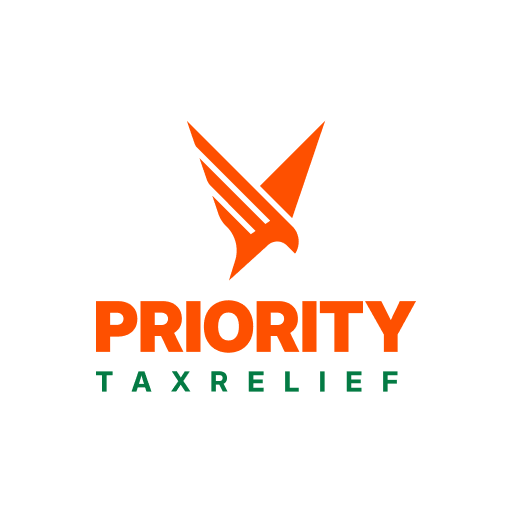Child Tax Credit 2026: Eligibility, How to Claim
The child tax credit is a popular benefit for taxpayers with dependents. Learn more about the credit and use our estimator to see how much you might get.

Many, or all, of the products featured on this page are from our advertising partners who compensate us when you take certain actions on our website or click to take an action on their website. However, this does not influence our evaluations. Our opinions are our own. Here is a list of our partners and here's how we make money.
Raising children isn’t exactly cheap. From diapers to school supplies, expenses add up fast. Thankfully, some parents can take advantage of a tax break that could help lighten the load.
What is the child tax credit?
If you are a parent or a caregiver with a dependent under the age of 17, the child tax credit is a benefit you can claim on your tax return. The maximum amount is $2,200 per child, but if your income is above a certain threshold, the credit gets reduced, potentially down to $0.
The credit is also partially refundable, meaning some people could receive a portion (but never the full amount) back a refund. For this filing season, the refundable portion — also known as the additional child tax credit — is capped at $1,700.
Income requirements for the child tax credit
If you made $400,000 or below as a joint filer or $200,000 or below as any other filer in 2025, you might qualify for the full $2,200 credit when you file your taxes this year. If your income is above those limits, the credit gets reduced by $50 for each $1,000 of income above the threshold until it phases out completely.
Child tax credit calculator
What is modified adjusted gross income (MAGI)? You may have noticed that we asked for your modified adjusted gross income in the calculator above. That's because the IRS uses MAGI to determine eligibility for the child tax credit. For many child tax credit filers, MAGI is the same as adjusted gross income (AGI), so your most recent tax return can be a helpful reference if your income hasn’t changed much. Your AGI can be found on line 11.
What are the 8 requirements for the child tax credit?
Generally, there are eight “tests” you and your qualifying child need to pass: age, relationship, dependent status, residency, financial support, citizenship, income and having a valid Social Security number.

1. Age: Your child must have been under the age of 17 at the end of the tax year. So, for the taxes you'll file in 2026, that means your dependent must have been 16 or younger at the end of 2025.
2. Relationship: The child you’re claiming must be your son, daughter, stepchild, foster child, brother, sister, half brother, half sister, stepbrother, stepsister or a descendant of any of those people (e.g., a grandchild, niece or nephew).
3. Dependent status: You must be able to properly claim the child as a dependent. The child also cannot file a joint tax return unless they file it to claim a refund of withheld income taxes or estimated taxes paid.
4. Residency: The child you’re claiming must have lived with you for at least half the year (there are some exceptions to this rule).
5. Financial support: You must have provided at least half of the child’s support during the last year. In other words, if your qualified child financially supported themselves for more than six months, they’re likely considered not qualified.
6. Citizenship: Per the IRS, your child must be a "U.S. citizen, U.S. national or U.S. resident alien."
7. Social Security number: The child being claimed as a dependent must have a valid Social Security number. Additionally, the taxpayer claiming the credit — that means you, or at least your spouse if filing jointly — must also have a valid SSN.
8. Income: As mentioned above, parents or caregivers claiming the credit also typically can’t exceed certain income requirements. Depending on how much your income exceeds the threshold, the credit is reduced incrementally until it is eliminated.
» Quality tax prep programs can help you claim the credit: See our list for the best tax software

Filing taxes as a new parent this year? If you welcomed a new family member in 2025, you may be eligible to open a “Trump Account," an investing account for children that includes $1,000 in seed money.
An official website is set to open in July, but eligible families can register now by filing Form 4547 with their tax return. Most tax software programs should prompt you if you qualify.
How does the refundable part of the credit work?
People who don't owe taxes or owe less than the credit amount may be able to get a partial refund by claiming the additional child tax credit. The maximum refund is capped at $1,700 per qualifying dependent.
The IRS figures your additional child tax credit amount by multiplying your earned income above $2,500 by 15%. You can claim that number or however much of the CTC credit you were entitled to but couldn’t fully use, whichever number is less.
To claim the refundable portion, all of the above income and dependent criteria must be met, and there are a few additional rules. For example, you must have at least $2,500 in earned income for the tax year. See the IRS interactive child tax credit assistant for more information.
How to claim the child tax credit
You can claim the child tax credit on your annual tax return. You’ll also need to fill out Schedule 8812. This schedule will help you determine your credit amount and, if applicable, how much of the partial refund you can claim.
Most tax software will guide you through claiming the child tax credit with a series of interview questions, simplifying the process and even auto-filling the forms on your behalf. If you made $89,000 or less in 2025, you might also be able to get free tax software through IRS Free File.
When will you get your child tax credit refund?
For the 2026 filing season, the IRS estimates that most people who file early and are eligible for the partially refundable child tax credit can expect to see refunds hit their bank accounts around March 2, 2026.
People who file by paper should expect longer wait times. The agency's "Where's My Refund" tool can also help you get a sense of what's going on with your funds.
Consequences of a child tax credit error
An error on your tax form can delay your refund or the child tax credit portion of your refund. In some cases, the IRS could also deny the entire credit.
If the IRS denies your CTC claim, you must pay back any CTC amount you’ve been paid in error, plus interest, and you might need to file Form 8862, "Information To Claim Certain Credits After Disallowance," before you can claim the CTC again. If the IRS determines that your claim for the credit is erroneous, you may also be on the hook for a penalty of up to 20% of the credit amount claimed
State child tax credits
In addition to the federal child tax credit, several states, including California, Colorado and New York, also offer their own state-level CTCs that you may be able to claim when filing your state return. Visit your state's department of taxation website for more details.

on Priority Tax Relief's website

on Alleviate Tax's website
On this page
On this page












